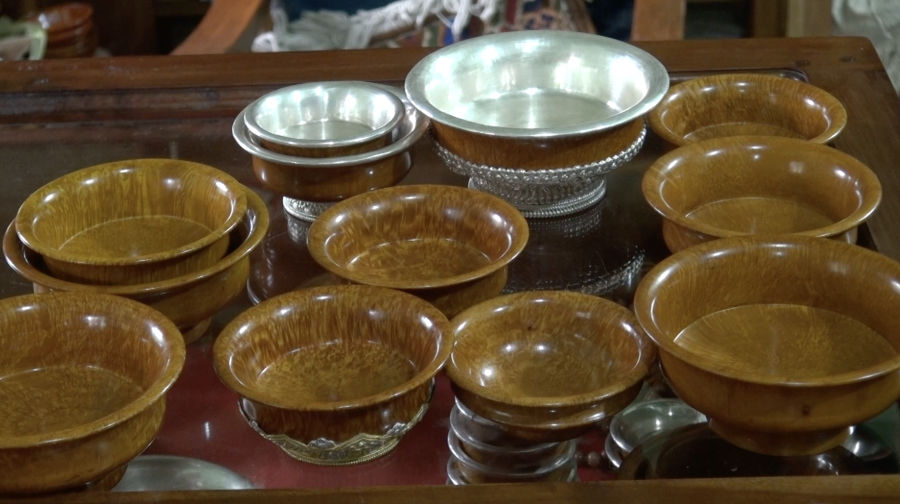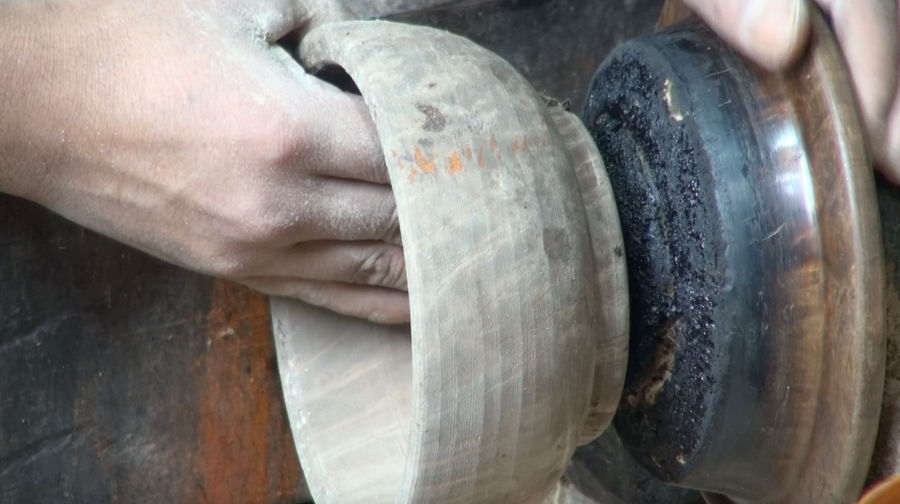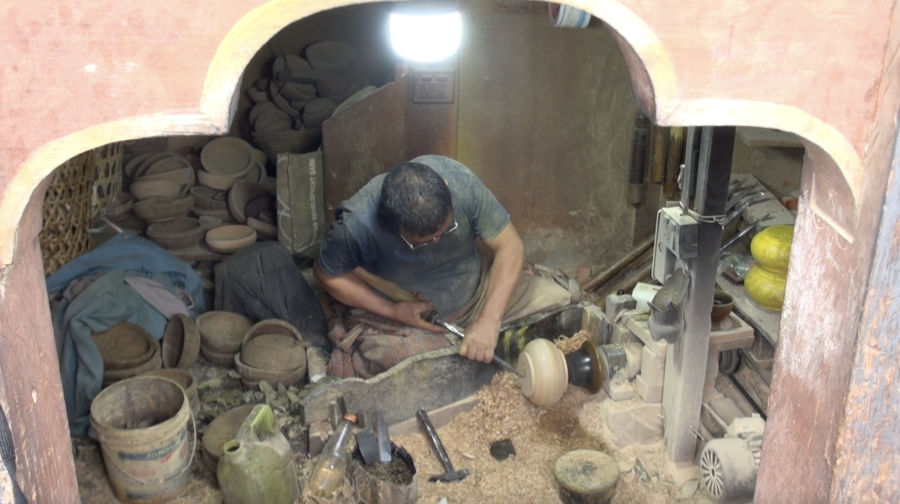 Dzabshi, a rare wooden burl, is highly valued in Bhutan for its uniqueness. It is believed to heal, ward off misfortune, and bring good fortune to its owners. Although no written records exist, the Bhutanese hold a strong faith in the cultural and spiritual value of the Dzabshi Phob, or wooden cup. Today, artisans in Tashi Yangtse continue to craft Dzabshi Phob, keeping the tradition alive that has been passed down for generations.
Dzabshi, a rare wooden burl, is highly valued in Bhutan for its uniqueness. It is believed to heal, ward off misfortune, and bring good fortune to its owners. Although no written records exist, the Bhutanese hold a strong faith in the cultural and spiritual value of the Dzabshi Phob, or wooden cup. Today, artisans in Tashi Yangtse continue to craft Dzabshi Phob, keeping the tradition alive that has been passed down for generations.
A burl is a rare growth on a tree, often caused by damage from fungus or mould.
In Bhutan, Dzabshi is known as the “jewel of trees.” Sacred and rare, the burl is believed to be protected by local deities.
Artisans extract these burls from trees that grow in high-altitude areas.
The rough-cut burl is first boiled in water, oiled, and dried to prevent cracking. Using chisels, artisans then skilfully shape it into cups of different sizes.

Each cup is polished several times and treated with natural oils to bring out the grain patterns and protect it from insects.
“Other wooden burls can be found, but Dzabshi is very rare and difficult to find. In one or two months, only a few pieces can be collected. The best Dzabshi is believed to come from trees locally known as Lakar, Lumar and Chalam,” said Choki Dorji, Artisan, Trashi Yangtse.
“Not every tree will have a wooden burl. We believe that local deities protect the Dzabshi trees. Before we find one, we often have unusual dreams, as if the burl belongs to the deities,” said Jangchub, Artisan, Trashi Yangtse.
There are about nine types of Dzabshi, each with its own unique striping patterns. The prices range from 10,000 to 800,000 ngultrum, depending on the striping pattern, size of the bowl or cup, and the type of tree used.
Dzabshi cups and bowls are mostly used during festivals and religious ceremonies.
“Dzabshi comes in different patterns. The most prized is TaaSo, shaped like horse teeth, followed by Wugthra, which resembles owl feathers, and Pema Chen Thra, the lotus flower pattern. Other types include Pho Thra and Moo Thra, featuring large and smaller stripes. It is believed that keeping a Dzabshi Phob at home can help bring wealth and prosperity,” added Jangchub, Artisan, Trashi Yangtse.
“We believe that owning a Dzabshi Phob will ward off illness and help fulfil wishes, especially in business with fewer obstacles. It is also said that drinking from a Dzabshi Phob can prevent poisoning and ward off negativity, which is what I learnt from my grandparents,” said Choki Dorji, Artisan, Trashi Yangtse.
From high-altitude forests to the hands of the skilled artisans, Dzabshi Phob carries centuries of tradition, craftsmanship and spiritual belief.

These wooden bowls and cups are more than beautiful objects; they are symbols of protection, prosperity and Bhutanese heritage, treasured by all who own them.
Sonam Darjay, Trashi Yangtse
Edited by Sonam Pem










